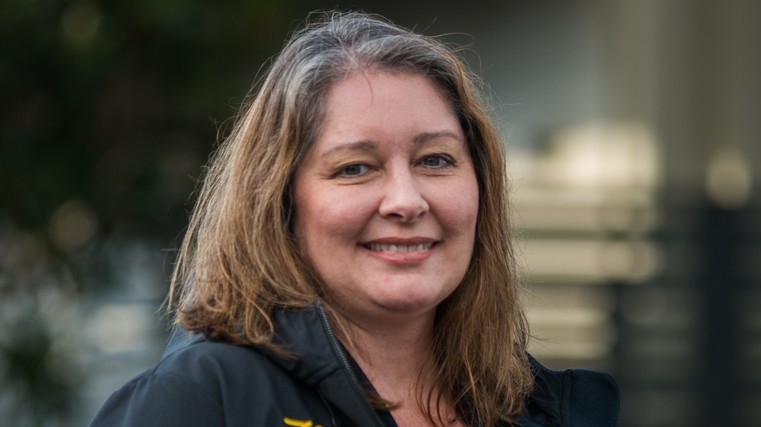Get registered with Tyrewise

The 3R Group, which is overseeing Tyrewise, is looking for future participants in the product stewardship scheme to get in touch.
The project for end-old-life tyres (ELTs) is now gathering momentum for its full roll-out later this year.
Adele Rose, chief executive of the 3R Group, says the registration of those taking part in the scheme, and particularly those selling tyres, is a key focus of the project for the first quarter of 2023.
An appeal has also been made to those wishing to be involved in the project’s technical advisory groups to get in touch.
“We’re excited to be back working on the implementation of the programme as we get ever closer to launch later this year,” says Rose, pictured.
“As the Ministry of Transport and Waka Kotahi begin working together to review tyre-import standards, their representatives are keen to engage with tyre importers. This is an example of work that will be undertaken through the technical advisory group – tyre importers.
“Whether you’re a seller or wish to provide your expertise and industry knowledge to a technical advisory group to continue the good work done by Tyrewise’s working group, please ensure we have your details. If you have any questions about your role or if you would like to talk to one of our team, visit www.tyrewise.co.nz/contact to get in touch.”
Getting registered
All importers, tyre retailers, generators, collection sites, transporters, retreaders, processors and manufacturers, also known as end users, must be registered as partners on Tyrewise’s database.
Most will then receive a site visit to assess access, typical volumes and ideal collection schedules. Processors and manufacturers only need to register if they wish to receive incentive payments.
Tyrewise’s software design helps everyone involved work together seamlessly. It will track tyres from collection to processing, providing verified volume and weight data.
This will enable payments and incentives to be paid to registered participants. Transactions can be generated easily and verified on the go with mobile devices or on a PC. Data is tracked and matched at pivotal points in the process.
The software has been designed to produce reports that evidence sustainable outcomes for ELTs. Registered partners will be able to report on how they are taking responsibility in the supply chain, see aggregated data on how their schemes are performing against its targets and objectives, and councils will be able to report on their activity to support regional waste plans.
It's essential that if you import or sell tyres to get registered. This will enable the free collection of ELTs from registered participants once the scheme has been launched.
More information can be found at https://www.tyrewise.co.nz/get-involved/#Register and visit https://www.tyrewise.co.nz/register-now to register.
The aim is to create a level playing field for all importers, which pay the same advanced stewardship fee for all new tyres at point of sale regardless of their location. This means customers are no longer charged disposal fees for ELTs.
You may be able to claim rebates if imports are directly shipped out to another country if a New Zealand port is the trans-shipping port. Evidence of this will be required.
ELTs will be collected from registered sites and will be picked up for free registered transporters.
You can book a regular collection, or one when you need, it through Tyrewise’s software. You will have to verify the collection as it is taking place and the registered processor will do the same when it receives the delivery.
ELTs will then be tracked through the Tyrewise software to processing. You will be able to report on what collections have taken place by size and volume.
Advisory groups
Six technical advisory groups (TAGs) will act as sounding boards for the trustees of Auto Stewardship NZ, which is the product stewardship organisation, and project managers.
They will provide specialist advice on key performance indicators that Tyrewise will be measured against. They must be representative of the supply chain and will include a mix ranging from large corporates to small entities, including not-for-profit organisations.
The six groups currently proposed are product and end markets – so processors and manufacturers, grants for market stimulation and research and development, tyre importers of those loose and on vehicles, tyre transporters, the advanced stewardship fee review committee, and tyres outside of scope including those on bicycles and non-motorised equipment.
The group for tyre importers, for example, will give advice to the trustees on innovative products entering the market that may impact the scheme and on import trends that could indicate changes in funding from the advanced stewardship fund.
This group will meet twice a year. It will also provide technical advice, in association with the programme managers, as it relates to the importation declaration process and liaise with Waka Kotahi and NZ Customs. To find out more about the TAGs, visit https://www.tyrewise.co.nz/our-people/#groups
Stewardship fees
Charges will initially be paid by the importer of loose or fitted tyres and must be passed onto consumers.
When the final government regulation is set, Tyrewise will work with retailers and importers to ensure the advanced stewardship fee is transparently declared at each point in the sales process – from importer to retailer and retailer to consumer.
Point-of-sale systems must disclose the fee to customers and Tyrewise will ask for proof of this.
The fee has not been finalised yet. The Ministry for the Environment is currently completing the enactment of the regulations. They are first considered by cabinet, the final rules are then gazetted as a regulation under the Waste Minimisation Act and then in-effect dates will be announced. The regulation will set the value of the advanced stewardship fee payable by importers.
Whether you import tyres or vehicles, collect old tyres or turn them into useful resources, Tyrewise’s aim is to “deliver transformational change and drive economic wellbeing”.
Each part of the supply chain has responsibility and Tyrewise is essentially the mechanism by which everyone in the supply chain takes responsibility for the environmental impact of products imported. These are air-filled and or solid tyres either loose or for use on motorised vehicles, bicycles from 2024 or non-motorised equipment, and casings.
Under Tyrewise, ELTs will be managed from collection to processing. They will not end up dumped, stockpiled or landfilled.
Tyrewise timelines
At the moment, a cabinet decision on enacting the regulations guide is being awaited. Government systems for collecting import data and advanced stewardship fees, and interface with the product stewardship organisation, are being set up.
Registered participants will then be offered service agreements for discussion. Site audits of registered participants will need to be completed, supply arrangements understood, and compliance requirements – such as those of local councils or with national environmental standards – checked.
Participants will by then be fully set up in the Tyrewise system to receive tyres or product with those receiving payments, such as collection sites, tyre transporters and processors.
Training materials and information packs will then be delivered, while Tyrewise’s systems are in place already for operational launch. The completion date for July 31 for all of this depends on the government.
The big target date after that is September 30. This is when service agreements in place with registered participants should be signed, and importers of loose tyres or vehicles have incorporated advanced stewardship fees into sales systems and can show they transparently disclosed to buyers.
By then, direct importers of non-road registered vehicles need to be registered with Tyrewise, point-of-sale information should be in place for consumers, and all retailers and generators will have been trained in how to arrange collection of tyres.





